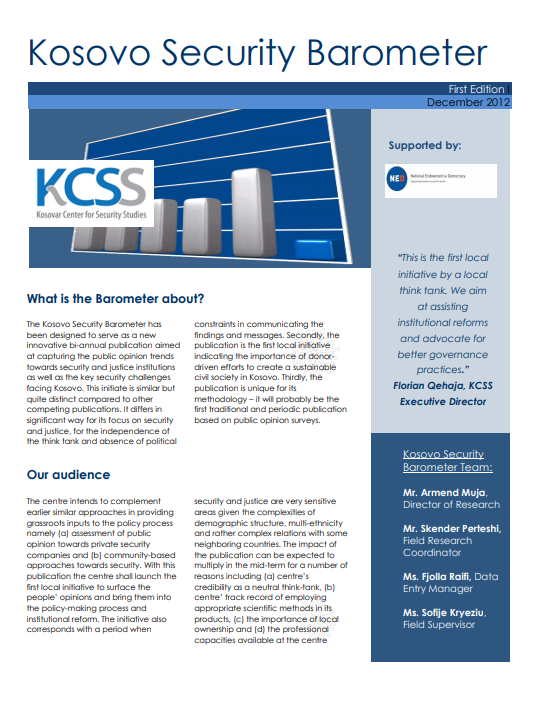10/12/2012

Kosovo Centre for Security Studies (KCSS) launched the Kosovo Security Barometer survey in December 2012. The report provides a summary of people’s perceptions about security in Kosovo, the performance of judicial institutions, the nature of external and internal threats, political stability, economic and environmental security. The Barometer is carried out through face-to-face interviews conducted around Kosovo, and using a questionnaire developed by KCSS. All questions are close-ended, and the majority is in the form of five-point Likert scales. Sampling, piloting and interviews were conducted by KCSS team involving 20 researchers. A national sample was drawn that is representative of the Kosovo population that is 18 years and above and includes 1067 households. The ethnic breakdown of the interviewed respondents is: K-Albanian 89%, K-Serbian 7%, and other K-minorities 4%.
The poll revealed that the respondents were most satisfied with the work of Kosovo Security Force, followed by KFOR and firefighters. People generally reported no major concerns of any potential military threat from abroad but instead portraying the consequences of economic crisis as the main external threat facing Kosovo. Serbia, Greece and Russia are seen as the least friendly countries. Respondents held higher regards towards Albania, USA and Turkey. When asked about their opinion over Kosovo-Serbia dialogue, respondents were almost equally split. People maintain concerns regarding the unresolved issue of northern Kosovo but did not see major risks of inter-ethnic conflicts in Kosovo in the future. Generally, people saw economic concerns, corruption and the issue of the northern Kosovo as the paramount threats to Kosovo’s political stability. Most of the respondents viewed the electoral system with doubts.